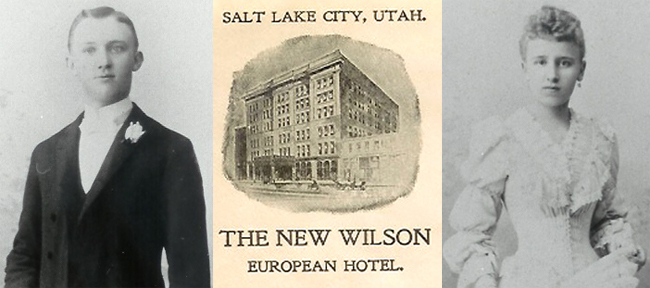On June 27, 1844, Joseph Smith, founder of the Church of the Latter Day Saints and translator of the Book of Mormon, was killed by a mob for his controversial beliefs. A little over a half-century later, 31-year-old Kentucky businessman Herman Volkerding witnessed Smith’s legacy in Salt Lake City, Utah.
Volkerding was on a 3,000-mile marketing trip through the western United States on behalf of his employer, a distillery headquartered in Louisville. Although he was unlikely to have any sales success with the Mormons, while in Salt Lake City Volkerding did not miss a visit to the magnificent tabernacle where they worshipped. Writing his wife Mary in July 1901, he “could not help but wonder at the ingenuity of the Mormon people.” He described standing in a gallery at one end of the 200-foot-long, 8,000-seat temple as a Mormon elder at the other end “dropped a pin held not higher than 10 inches and it could be plainly heard.”
The next day, Volkerding attended a special musical service at the tabernacle and called it “the grandest thing by far that I have ever seen.” He admitted to Mary “that I had to fight to keep from crying and to save me I could not keep some tears back.” He listened with rapture to “the sweetest tenor you ever heard” and exclaimed of the 5,500-pipe organ that “you would hardly believe it but a human voice at any pitch can be reproduced so naturally and sweetly.” Volkerding left his wife with an image of her husband, his lip quivering, overcome by the power of music. “It was too much and I know my chin was sticking in my nose a good part of the time.”
Herman Volkerding’s travels and his affectionate letters to his wife can be found in the Volkerding Family Papers at WKU’s Special Collections Library. Click here to download a finding aid. Find out about other collections by searching TopSCHOLAR and KenCat.

